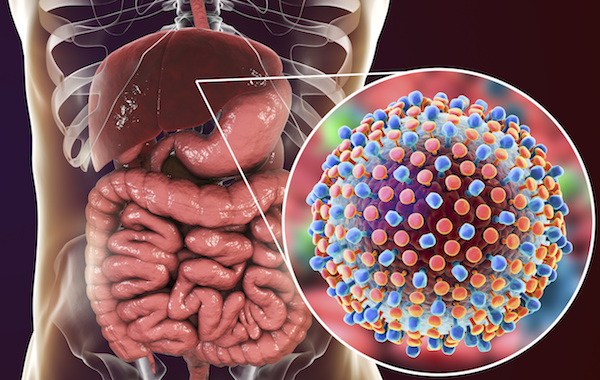Understanding Hepatitis C: Causes, Symptoms, and Modern Treatment Options
Hepatitis C (HCV) is a viral infection that attacks the liver. It can cause both acute (short-term) and chronic (long-term) illness. While acute infection often doesn’t cause severe symptoms, chronic HCV can lead to serious liver damage, including cirrhosis (scarring) and liver failure. The good news is that with proper diagnosis and treatment, many people with HCV can achieve a complete cure.
This article delves into the world of Hepatitis C, exploring its causes, symptoms, and the latest advancements in treatment options.

What Causes Hepatitis C?
HCV infection is caused by the hepatitis C virus. The primary mode of transmission is through contact with infected blood. Here are some common ways HCV spreads:
- Sharing needles or syringes: This is the most common risk factor, particularly among people who inject drugs.
- Accidental needle sticks: Healthcare workers and others who work with needles or sharp instruments can be exposed if proper safety protocols are not followed.
- Blood transfusions or organ transplants: While extremely rare in developed countries due to rigorous screening procedures, receiving an infected blood transfusion or organ transplant in the past (before 1992) can be a risk factor.
- Sharing personal care items: Sharing razors, toothbrushes, or other items that could come into contact with infected blood is a possibility, though less common.
- Sexual transmission: While less frequent than blood-borne transmission, HCV can be spread through sexual contact with an infected person. The risk is higher for people with HIV co-infection or those with rough sex practices.
- Mother-to-child transmission: The risk of a mother with HCV passing the virus to her baby during birth is low, but it exists.
Recognizing the Signs and Symptoms of HCV
Many people with acute HCV infection experience no symptoms at all. However, some individuals may develop flu-like symptoms 6-12 weeks after exposure, including:
- Fatigue
- Loss of appetite
- Nausea or vomiting
- Abdominal pain
- Dark urine
- Clay-colored stool
- Fever
- Joint pain
These symptoms are often mild and nonspecific, making initial diagnosis challenging. Chronic HCV infection may also present with minimal or no symptoms for years. However, as liver damage progresses, some individuals may experience:
- Increased fatigue
- Jaundice (yellowing of the skin and eyes)
- Swelling in the abdomen (ascites)
- Easy bruising or bleeding
- Confusion
- Loss of concentration
Importance of Early Diagnosis
Early diagnosis of HCV is crucial to prevent serious liver complications. If you have any risk factors for HCV infection or experience any of the mentioned symptoms, it’s essential to get tested. A simple blood test can detect the presence of the virus or antibodies against it.
Modern Treatment Options for Hepatitis C

The landscape of HCV treatment has undergone a significant transformation in recent years. Gone are the days of long-term therapy with harsh side effects. Today, highly effective and well-tolerated medications offer the possibility of a complete cure for most people with HCV.
Direct-Acting Antivirals (DAAs)
Direct-acting antivirals (DAAs) are the current standard of care for Hepatitis C treatment. These medications work by targeting specific steps in the virus’s replication cycle, effectively stopping it from multiplying and causing further damage to the liver.
DAAs are typically taken as oral medications (pills) once or twice a day for a duration of 8-12 weeks, depending on the specific medication and the patient’s genotype (strain) of the virus. These medications boast high cure rates (often exceeding 90%) and are generally well-tolerated with minimal side effects.
Individualized Treatment Plans
Your doctor will develop a personalized treatment plan based on several factors, including:
- The specific genotype of HCV you have
- The severity of your liver damage
- Your overall health and medical history
- Any medications you are currently taking
Monitoring Progress and Achieving a Cure
During treatment, your doctor will monitor your progress through regular blood tests. These tests will assess the effectiveness of the medication and track any changes in your liver function.
Following successful completion of treatment, you will undergo further testing to confirm a sustained virologic response (SVR), which signifies that the virus is no longer detectable in your blood and you are considered cured.
Living Well with Hepatitis C
Even after achieving a cure, it’s important to prioritize healthy lifestyle practices to support your overall well-being and liver health. Here are some key strategies:
- Maintain a healthy weight: Obesity can increase the risk of liver complications. Aim for a balanced diet and regular exercise to manage your weight.
- Eat a nutritious diet: Focus on consuming plenty of fruits, vegetables, and whole grains. Limit processed foods, saturated and unhealthy fats, and added sugars.
- Avoid alcohol: Alcohol consumption can further damage the liver. Abstaining from alcohol is highly recommended for those with HCV.
- Get vaccinated: Talk to your doctor about vaccinations for hepatitis A and B, which can further protect your liver.
- Practice safe sex: If you are sexually active, use condoms consistently to prevent the transmission of HCV and other sexually transmitted infections.
- Manage stress: Chronic stress can impact your overall health. Explore stress-reduction techniques such as yoga, meditation, or deep breathing exercises.
- Schedule regular checkups: Continue to visit your doctor for regular checkups to monitor your liver health and overall well-being.
Hope for the Future: Research and Development
Researchers are constantly striving to improve HCV treatment options. Here are some exciting areas of ongoing research:
- Shorter treatment regimens: The goal is to develop even shorter treatment durations, potentially reducing treatment to as little as 4-8 weeks.
- Broad-spectrum DAAs: These medications would be effective against all HCV genotypes, simplifying treatment decisions and potentially eliminating the need for genotyping.
- Treatment for special populations: Research is ongoing to optimize treatment for specific populations, such as individuals with co-infections or those who have not responded well to current therapies.
- Hepatitis C vaccine: While there is no currently available vaccine for HCV, researchers are actively pursuing the development of a safe and effective vaccine to prevent future infections.
